|
|
Post by Napoleon Bonaparte on Oct 14, 2015 4:49:44 GMT
next up by sherman = proxy wars, next by suvorov = dunno but both going good  |
|
|
|
Post by Jean Lannes on Oct 14, 2015 11:47:59 GMT
Didn't we already have Proxy Wars?
|
|
|
|
Post by General William T. Sherman on Oct 14, 2015 12:04:04 GMT
Yes, we did on page 2.
|
|
|
|
Post by Jean Lannes on Oct 14, 2015 12:06:37 GMT
Yeah, everytime I revisit this thread I see Douglas MacArthur starring at me  What will be the next Lecture of Suvorov? |
|
|
|
Post by General William T. Sherman on Oct 14, 2015 12:12:33 GMT
I'm doing space race next I'm pretty sure, idk what he's gonna do.
|
|
|
|
Post by Jean Lannes on Oct 14, 2015 12:14:06 GMT
"That crazy Russian dude will find something to do as long as we pay him with Vodka"  And Space Race, that sounds interesting.. |
|
|
|
Post by Napoleon Bonaparte on Oct 14, 2015 14:18:49 GMT
Sorry guys for the misinformation I wrote  |
|
|
|
Post by General William T. Sherman on Oct 14, 2015 14:23:07 GMT
Nah man, it's fine! I myself don't even know what topic I'm going to do next until I begin doing it typically!
|
|
|
|
Post by Suvorov on Oct 14, 2015 19:47:52 GMT
"That crazy Russian dude will find something to do as long as we pay him with Vodka"  And Space Race, that sounds interesting.. I am going to do Detante and the fall of the USSR. Maybe even lay the link between the fall of the USSR and how Vladimir Vladimirovitsj Putin came to power. With me, you never know. .. |
|
|
|
Post by General William T. Sherman on Oct 14, 2015 19:59:17 GMT
That's true Suvorov, you could nuke all of Africa and we'd never see it coming! Or the nukes even dropping down! You're that unpredictable. |
|
|
|
Post by General William T. Sherman on Oct 16, 2015 1:11:03 GMT
Waiting for Suvorov to do his lecture so I can do mine... |
|
|
|
Post by Suvorov on Oct 16, 2015 5:32:57 GMT
You can do first. Due to time zones I am only able to do my lecture 12 hours later  |
|
|
|
Post by Suvorov on Oct 19, 2015 10:23:16 GMT
In this lecture, we’re going to look at the détente, a period of improved relations between the USSR and the USA, which began in 1969/1971 and ended with the Soviet invasion of Afghanistan. Before the détente, tensions between the Soviet-Union and the USA were ever-present. These tensions reached a climax during the Cuban missile crisis and resulted into some of the first agreements on nuclear arms control, including the Limited Test Ban Treaty. 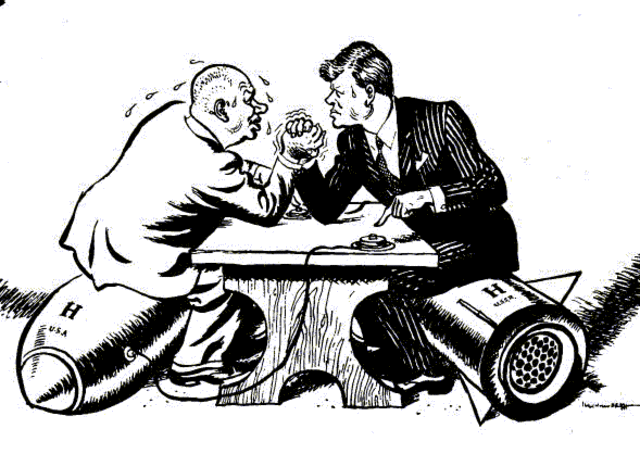 However, American, Chinese and Russian involvement in the war in Vietnam made the tensions rise again. By the late 1960s both countries had several concrete reasons for resuming arms talks. The nuclear arms race was incredibly expensive, and both nations faced economic difficulties as a result of the spending of resources to military research. 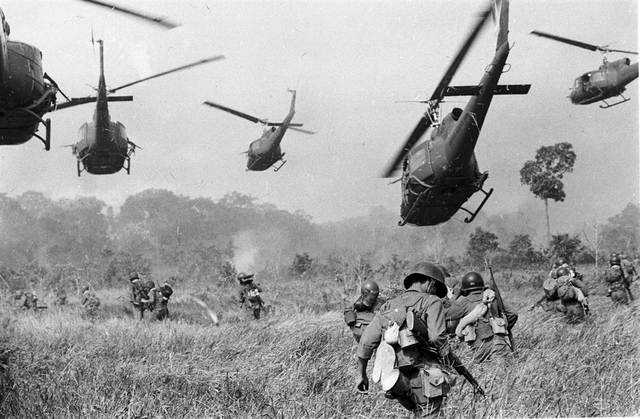 The emergence of the Sino-Soviet split (because of ideological conflicts between the two superpowers) also made the idea of generally improving relations with the United States more appealing to the USSR. The United States faced an increasingly difficult war in Vietnam, and improved relations with the Soviet Union were thought to be helpful in limiting future conflicts. With both sides willing to explore accommodation, the early 1970s saw a general warming of relations that was conducive to progress in arms control talks. 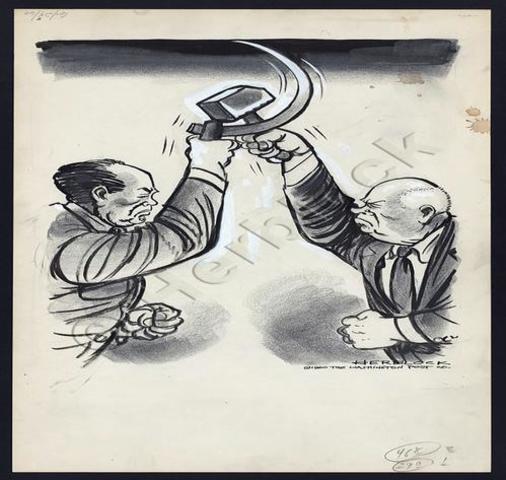 On May 22, Richard M. Nixon became the first American to visit Moscow. What was even more memorable was that he and Leonid Brezhnev signed seven agreements covering the prevention of accidental military clashes; arms control, as recommended by the recent Strategic Arms Limitation Talks (salt); cooperative research in a variety of areas, including space exploration; and expanded commerce. 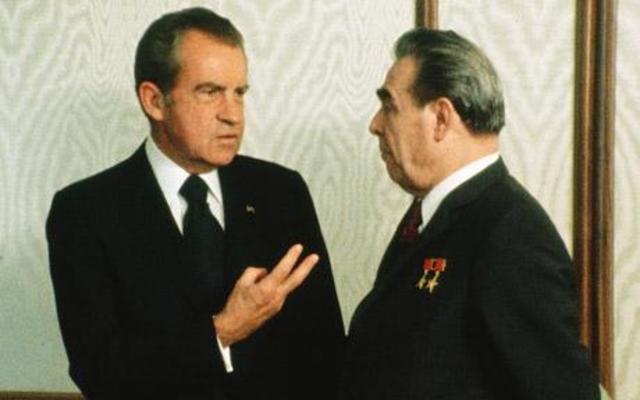 (Richard is giving Brezhnev the middle finger) The first round of the SALT talks resulted in the Antiballistic Missile Treaty, which set a quotum on the maximum amount ICBM’s (Intercontinental ballistic missile) each country could develop. However, each new round of SALT talks became less and less fruitful. Civilians in every country started to believe that these warming of relationships between the USSR and USA would mean an end of the Cold War, but were dissatisfacted with the increasing interventions in the Third World. When the Soviet-Union invaded Afghanistan in 1979, the spirit of cooperation was replaced by a renewed mentality of competition and the arms control talks ceased.  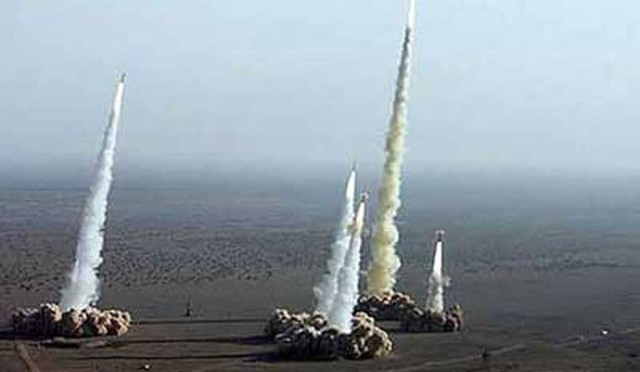 |
|
|
|
Post by General William T. Sherman on Oct 19, 2015 22:42:30 GMT
Today we're doing the origins of the conflict between Capitalism and Communism (not doing Space race, because quite frankly it's too boring for me to do it right now. Will do it next time). We'll be recapping the Russian Revolution and Civil War (if you want an indepth talk about that, go to the Interbellum thread), The Great Depression and the U.S trying to combat the USSR in a sort of proxy war, and Nazi collaboration in occupied Europe, specifically in Norway, Greece and the French speaking area of Wallonia in Belgium. First, the recap of the Russian Revolution.   Okay, I don't want to dwell too much on this, but here's the general jist of what happened. Discontent had been growing for a centuries in Russia due to serfdom. It was eventually abolished, but vestiges of the old system remained. In 1917, two revolutions occurred. The first overthrew the tsarist government in Russia. No communists involved in this one. The second one resulted in the Bolshevik takeover of the government. The White movements was established soon after and a deadly civil war ensued which killed up to 8 million people. The Reds were far more equipped than the whites and had could coordinate their attacks. This gave the Reds a huge advantage who ultimately won the war and established the Union of Soviet Socialist Republics (USSR/Soviet Union). The Whites were backed by ethe victorious European nations, Japan and America. This caused hatred within Russia against these other nations. The west (Europe and America) also resented the USSR even after the Soviets had won. America even refused to recognize the Soviet Union until 1934! This was the first major event of the 20th century which resulted in Communist control in a country. Next, the Great Depression and U.S support for Finland in 1939's winter war.   In October, 1929, the roaring twenties in America came crashing to a halt. The stock market crashed on Black Tuesday, and resulted in a complete disintegration of the global economy. Most of the economies of the world were related to the American stock market, most importantly Germany, France and Britain. Even the countries whose economies didn't rely on the American stock market were more than likely affected as well due to lack of global trade and reliance upon countries stock markets which had been affected by the stock market crash in America. It was pretty much global economic dominos. Few countries weren't effected. Some weren't affected due to fascist governments, such as Italy, but the USSR and its allies of Tannu Tuva and Mongolia weren't affected due to their communist governments. Communism became more appealing to Americans, Britons and any other country in despair due to the Great Depression. This was actually the only time in history more people left the U.S than entered,most of whom fled to Soviet Russia. Other noteworthy information:When Finland had to go to war with the Soviets in 1939-1940, the American people created many organizations aimed to aid the Finnish in the war. Former president Herbert Hoover even aided some organizations. Yes, we supported the Finns against the communists in Russia, but didn't help the allies against Germany until 1940. That just shows how much the U.S despised the Soviets, and vice versa. Finally, three Nazi collaborators who had their roots embedded due to fear of Communism:Ionnis Rallis, Leon Degrelle and Vidkun Quisling.   When Germany invaded Greece in 1941, they knew they couldn't hold onto it by themselves. They would need a puppet government in charge. Greece went through three different collaborationist PM's until Ionnis Rallis came along. Rallis was a staunch anti-communist, and believed that the resistance groups which were communist must be destroyed. There were multiple rebel groups in Greece fighting against their occupiers, but the major one was a communist one. Rallis created a volunteer army of Greeks to fight these rebels. During Rallis's prime minstership, the Nazis rounded up more Jews, mainly in Salonika, the Jewish cultural center in Greece. Rallis wasn't anti-Semitic, but he didn't do anything to stop the Nazis from rounding up his countrymen. Rallis was sentenced to life imprisonment in 1945 and died in 1946. In 1940, Germany invaded Belgium. Leon Degrelle had created a political party named the Rexists in Wallonia. It wasn't fascist, but Degrelle wanted to become a person in power in Germany. He went to fight in the Eastern Front along with a volunteer SS division of fellows Wallonies. The division fought hard during the war, and Degrelle advanced quickly through the ranks. He was quickly promoted to marshal and even met with Hitler. Degrelle was a fierce anti-communist as well, and was willing to do anything to destroy it. He, again, didn't stop Germany from rounding up Jews in Wallonia. After the war, Degrelle fled to Spain. Finally, Vidkun Quisling collaborated with the Nazis in Norway. He went on volunteer work for the League of Nations in Russia, and had to feed starving people. He saw the evil of communism, and believed he needed to destroy it. He was out in de Jure charge of a puppet state in Norway in 1943. Quisling became infamous in allied countries, specifically Britain, as being a traitor, and being called a Quisling meant that you were a Nazi collaborator. As per usual, he didn't want Jews to be deported but he didn't do anything about it. He was executed in 1945 after war trials. |
|